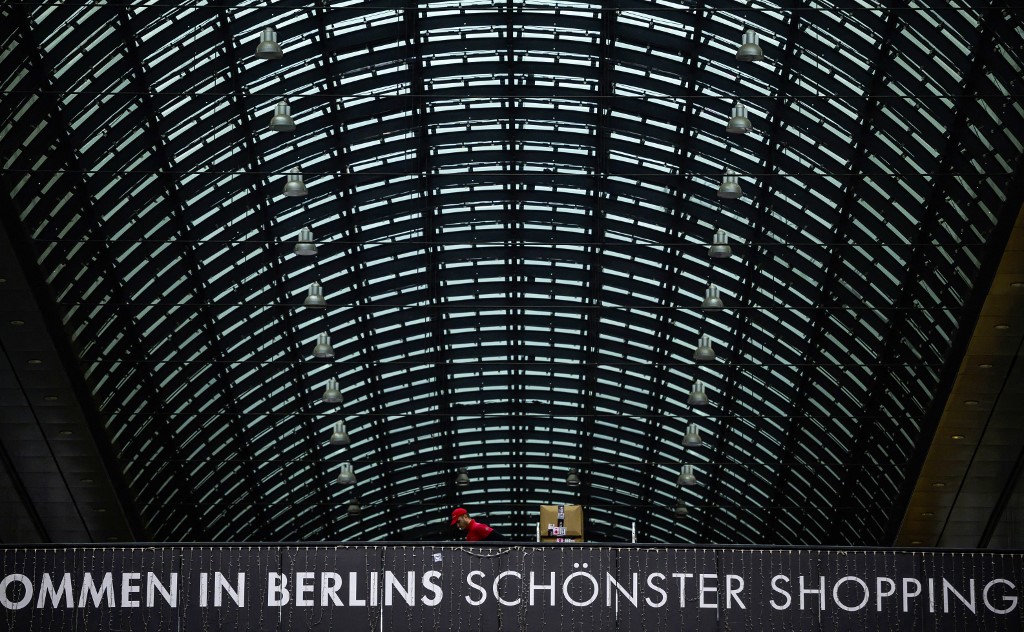BERLIN, Jan. 30 (Xinhua) -- The energy crisis continues to put the brakes on Germany's economy, with gross domestic product (GDP) declining by 0.2 percent in the fourth quarter of 2022 compared to the previous quarter, according to preliminary figures published by the Federal Statistical Office (Destatis) on Monday.

A worker pulls packages across an overpass at a shopping mall in Berlin on January 11, 2023. (File photo: CFP)
After Germany "performed well despite difficult conditions in the first three quarters," the country's economic performance decreased again slightly, Destatis said. Private consumer spending, which previously had a stabilizing effect, also started to slump.
High inflation is reducing the available incomes of many consumers, with one in three Germans saying they are "very afraid" of not having enough money to get by, according to the German Retail Federation (HDE).
Driven by soaring energy prices, inflation in Germany peaked at 10.4 percent in October, before slowing to 8.6 percent at the end of 2022. Nevertheless, inflation measures to relieve consumers' burdens, such as the energy price cap, have had a cooling effect on prices.
As a result of the measures, the German government is now expecting inflation to fall more sharply than recently forecast. Instead of dropping to 7 percent as previously predicted, the annual inflation rate is expected to fall to 6 percent in 2023.
Last week, the German Minister for Economic Affairs and Climate Action Robert Habeck sounded a positive note when he predicted that the country would avoid a recession this year, with an expected growth of 0.2 percent. Germany has made the energy crisis "manageable," Habeck said, but he has warned that it is not over yet.


